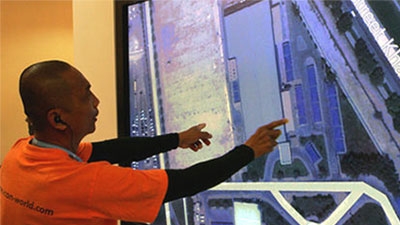Broadband is increasingly being recognized as a general purpose technology that can have wide-reaching impact on economies by transforming the way people communicate, innovate, and do business.
At the Connect Arab Summit hosted by the International Telecommunication Union in Doha, March 5-7, 2012, the World Bank announced a new initiative to improve broadband connectivity in the Middle East and North Africa (MENA).
“Worldwide, broadband is becoming an essential infrastructure for innovation, economic growth, and competitiveness,” said Doyle Gallegos, practice leader for connectivity infrastructure at World Bank. “This World Bank initiative will help increase MENA countries’ capacity to cope with the tremendous predicted increase in broadband traffic and to compete in the 21st century’s global market.”
The World Bank’s broadband connectivity initiative will study the potential for developing regional broadband backbone networks in the Middle East and North Africa, focusing on a new approach that leverages already-deployed infrastructure from other utilities, such as electricity, transport, oil, and gas. The study is expected to tackle bottlenecks to broadband connectivity in the region, with case studies on Egypt, Jordan, Morocco, and Tunisia.
The Middle East and North Africa region has been actively increasing broadband connections. Over a quarter of all households in the region are connected to broadband today, and broadband traffic is predicted to grow by more than 100 percent in the next five years, making MENA the fastest growing region for broadband connectivity in the world with Sub-Saharan Africa.
The broadband connectivity initiative is part of the World Bank’s Arab World Initiative and is supported by the Public Private Infrastructure Advisory Facility (PPIAF) and the Korean Government. Jointly with InfoDev, the World Bank has also produced the Broadband Strategies Handbook, which provides hands-on knowledge of the broadband market, technology, and policy action.
Citizen Participation
The World Bank is also finding ways to leverage citizen participation in the creation of information and communication technologies (ICT) solutions to development problems. An example was the successful Cairo WaterHackathon, held in October 2011.
The WaterHackathon brought together Egyptian technologists with water specialists to brainstorm innovative information and communication technologies solutions for Egypt’s biggest water challenges.
“The Cairo WaterHackathon allowed the World Bank to ‘do things differently’ in the aftermath of the Arab Spring and engage local communities interested in shaping the future of their country,” explained Carlo Rossotto, the World Bank's MENA region coordinator for information and communication technologies. “Based on this success, the World Bank will increasingly use citizen participation in the creation of ICT solutions as a mainstream tool to tackle development challenges.”



